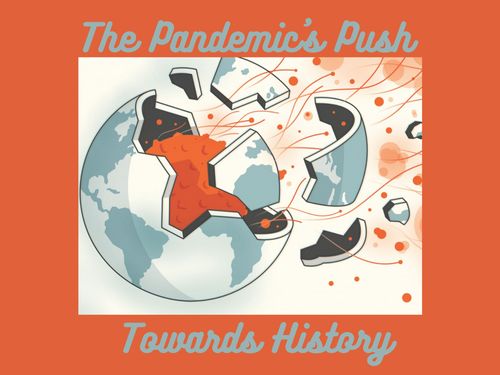The pandemic hasn't changed history, it’s accelerated it
Nov 11, 2021 · 2 mins read
0
Share

Richard Haass’ article in Foreign Affairs, “The Pandemic Will Accelerate History Rather Than Reshape It” drew inspiration from his 2017 book “A World in Disarray.” Haass argued that pre-COVID trends were not being overturned by the pandemic; rather, they were being accelerated.
Save
Share
Declining American leadership, lack of global cooperation, rising nationalism, anti-migration sentiments, weak states, democracy’s recession, great power rivalry, and “decoupling” of the US-China relations… all were features of the international system before 2020.
Save
Share
Post-America. The lack of will on part of the US to lead global programs, and external disillusionment with the American model, were evident in the absence of American-led international responses to the pandemic.
Save
Share
US v China. Anti-China attitudes in the US have been aggravated by the belief that Beijing’s inaction created the pandemic. The US is shifting attention away from multinational cooperation to bipolar competition with China.
Save
Share
Multipolarity. As the US recedes isolationism, China will try to fill the void. As it lacks the ability to dominate the globe, the world will fall back into an era of great power rivalry. Self-serving national goals will undermine the formation of a true international community.
Save
Share
Nation above all. Pandemic-induced debt will weaken states while feeding into rising nationalism. Sharper divisions will arise between states due to their differing response to the pandemic, stoking anti-immigration sentiments.
Save
Share
Crumbling regional projects. The swing from international to national will also be reflected in regional organizations. Even cohesive groups like the EU may fall apart when member countries blame each other for spreading the virus.
Save
Share
Declining democracy. An increase in governmental power to manage the pandemic will intensify the propelling of illiberal authoritarian rule, constraining individual freedom.
Save
Share
Given the above, the post-pandemic world will reflect the era after World War 1 with its great power rivalry, failure of international cooperation, American isolationism and economic crisis - rather than the post Second World War period which saw a phase of global cooperation.
Save
Share
Bottom line: The pandemic did not push the world into disarray. It intensified the extent of the disarray - the breakdown of international relations - it was already facing.
Save
Share
0